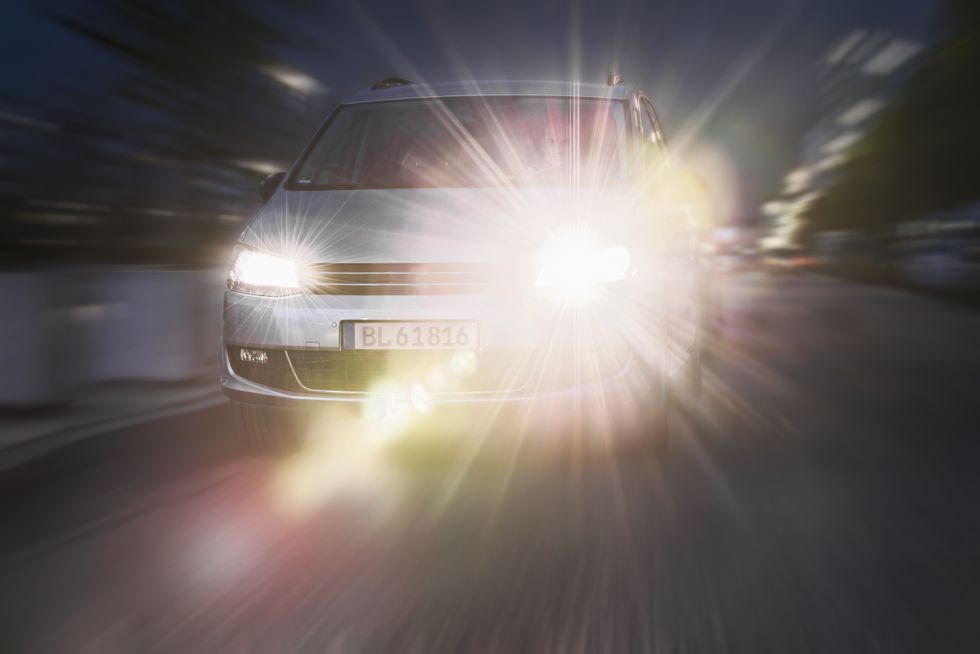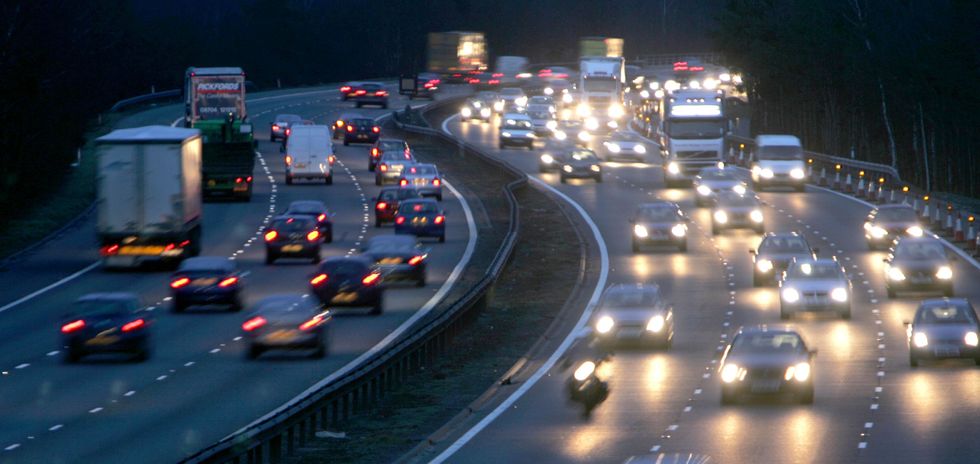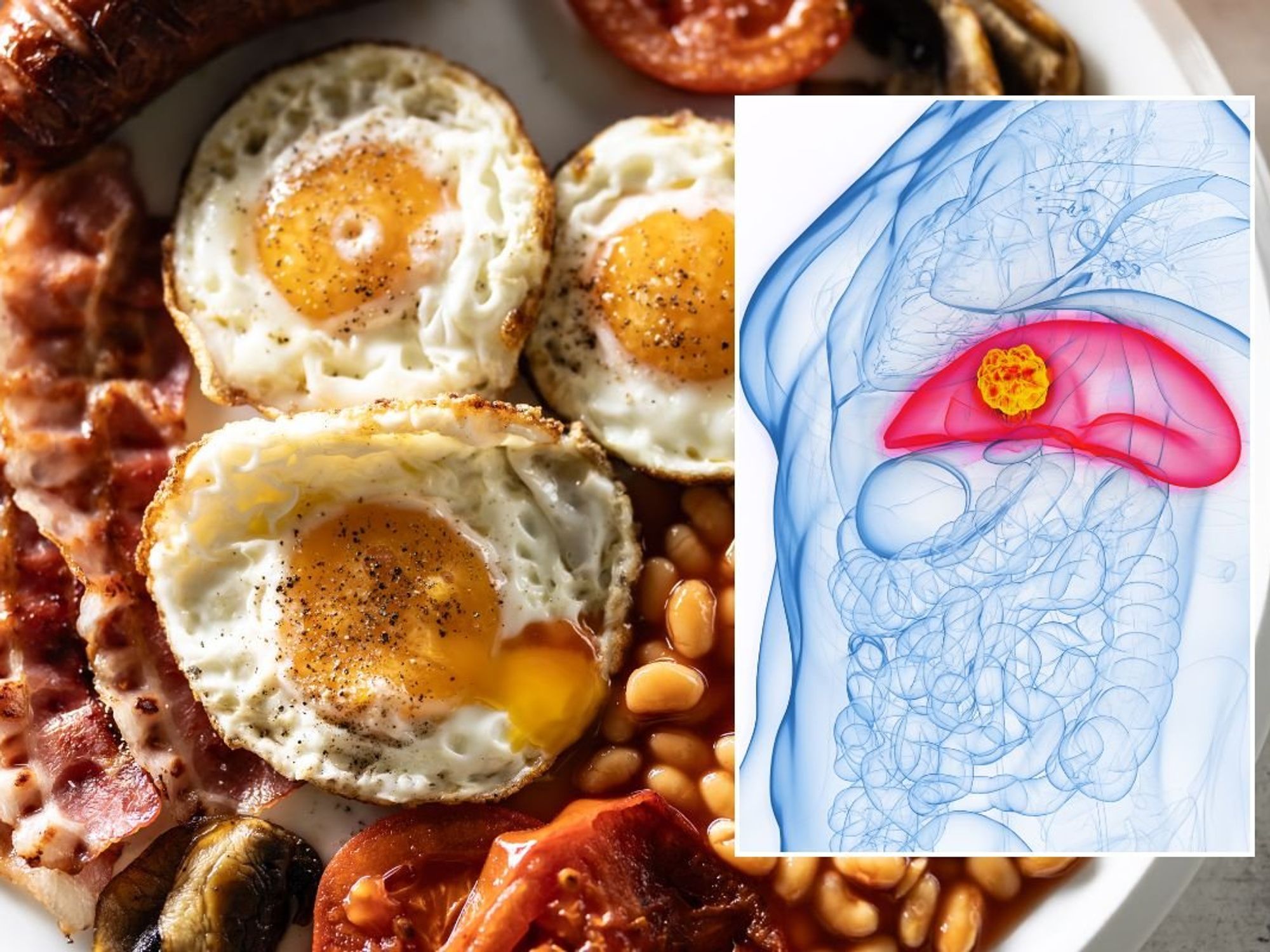Motorists could face 'mandatory vision checks' when renewing driving licence under new proposals

Study into headlight glare is expected to be completed in 2025
Don't Miss
Most Read
Experts have called for mandatory vision checks as part of licence application and renewal processes to help drivers avoid being impacted by glares on the road.
The need for checks comes as a groundbreaking study launches to help tackle the growing issue of headlight glare experienced by Britons on UK roads, particularly older motorists.
The project, led by independent research consultancy TRL in partnership with the Department for Transport, aims to understand the factors causing glare and develop solutions to address them.
Beginning this month and running until spring 2025, the study will employ instrumented cars to measure light levels experienced by motorists during real-world driving conditions.
Do you have a story you'd like to share? Get in touch by emailing motoring@gbnews.uk

Headlight glare can cause driver eyesight to worsen
| GETTYAdam Sampson, chief executive at The Association of Optometrists explained that the group have "long argued" that the way drivers' vision is assessed needs to change.
He pointed out that the current number plate test is inadequate for assessing all aspects of visual function necessary for safe driving.
Sampson also expressed support for the research, explaining that many drivers are “increasingly worried” about the effects of being dazzled by headlights.
He said: "With growing waiting lists for cataract operations and hospital eye appointments there is an added risk that we will see a growing number of these cases. That is why we continue to call for a change to the law so regular vision checks are a mandatory part of licence application and renewal."
This is particularly crucial given the growing waiting lists for cataract operations and hospital eye appointments, which may lead to an increase in drivers with substandard vision on UK roads.
The study will also employ a comprehensive approach to assess the conditions that lead to glare from oncoming headlights.
TRL will equip a car with specialised instruments to measure light levels during actual drives on UK roads. Factors such as weather conditions and ambient lighting will also be recorded to provide a complete picture of the circumstances that contribute to high brightness levels and glare.
Rod Dennis, RAC road safety spokesperson, who welcomed the project, added that he hopes it will get to the bottom of the glare issue "experienced by so many drivers up and down the country".
Both organisations emphasised the significance of this study in addressing a widespread concern among motorists and potentially improving road safety for all users.
Following the practical trials, researchers will conduct a review of scientific evidence and engage with stakeholders to develop actionable recommendations for the Department for Transport.
While the TRL study focuses on headlight glare, the AOP emphasised the need for broader improvements in vision standards for driving.
Meanwhile, a recent RAC survey found that 89 per cent of drivers believed that some car headlights are too bright. Among those expressing concerns, 91 per cent reported being dazzled while driving, with three-quarters stating this occurs regularly.
LATEST DEVELOPMENTS:
- Vauxhall owner could leave the UK with decision due 'in the next few weeks' amid electric car targets row
- British drivers demand Rachel Reeves cuts VAT in Autumn Budget with car tax hikes causing 'strain'
- Elderly motorists risk losing ability to drive amid medical conditions review restricting vehicle usage
 The trial will look at the different factors affecting headlight glare | PA
The trial will look at the different factors affecting headlight glare | PADennis added: "Our own long-term research shows that a significant proportion of the driving population struggles with dazzle, with some people reducing how much they drive, or even giving up driving at night altogether."
The issue has become so severe that some motorists have altered their driving habits or ceased night-time driving entirely.










